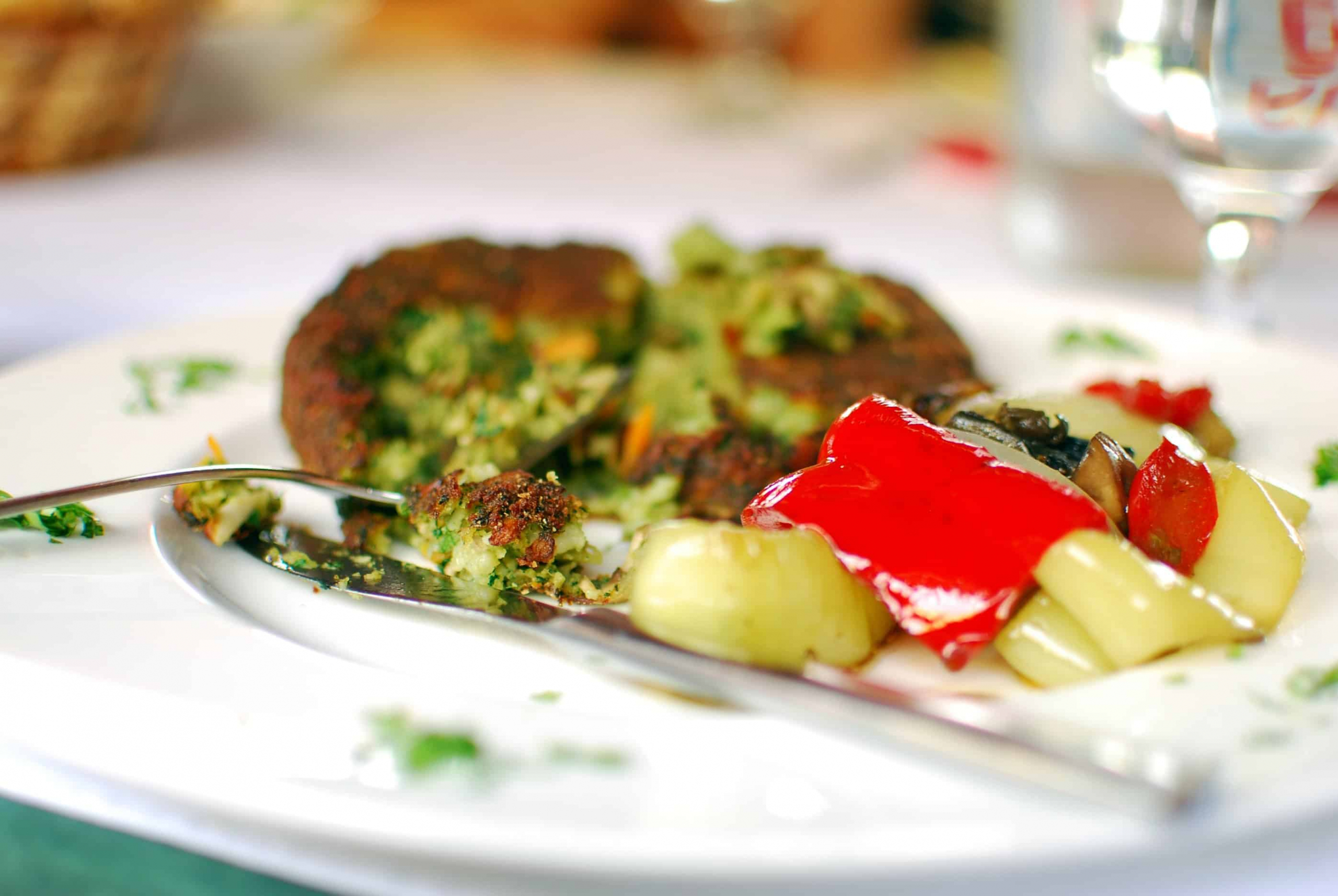As a school teacher biking to U of T graduate classes every week, I am constantly hungry. Imagine an endless supply of moist, gluten-free brownies for snack; for lunch, a thick, garlicky dahl served on a bed of rice with fresh baked bread; for dinner, a Maple Miso Roast entrée, chock full of tasty roasted brussels sprouts and chickpeas. Such delicious, healthy, and ethically-based food is what I actually ate today — the brownies were made by a student’s parents to be shared after swim class; the dahl was a three-dollar meal cooked in our school’s kitchen; and the roast is on this week’s menu at the Harvest Noon Cafe in the GSU building (16 Bancroft Ave.).
Many food establishments on and off-campus are offering meatless alternatives as demand for local, organically grown food becomes more accessible. In light of the recent E-coli outbreaks in Canadian meat-processing plants — New Foods Classic and XL Foods — personal health may suffer from the meat you choose to eat, and so, too, will the health of the planet and all the animals who share it with us.
In an article published in the November 19 issue of The Varsity, Abdullah Shihipar argued for more U of T student-run food outlets, noting that a sense of community and social justice prevails when, “students have an obligation to make our businesses as morally responsible as possible.” This can start with our campus cafeterias promoting Meatless Mondays as a moral and sustainable food alternative to factory farming.
By slaughtering 60 billion animals per year, we are endangering our planet for future generations. Animal agriculture has been described by the UN Food and Agriculture Organization as the primary cause of climate change, producing 18 per cent of all greenhouse gases.
If you care about social justice and life on Earth, having Meatless Mondays at U of T is a great place to start! The world is running out of fresh water. It takes 17,000 litres of water to produce one pound of beef. By not eating meat, we cut our water consumption in half. Additionally, millions of tons of toxic pesticides from feed-crops contaminate our waterways, contributing to soil erosion, deforestation, and species extinction. Ten times more land is used for animal agriculture than plant-based diets.
The demand for U of T Meatless Mondays represents a behavioural shift among many students on campus. As a vegetarian, I am advocating for more healthy, sustainable, plant-based food in our cafeterias with daily vegan options that are grown locally and that nurture a sense of community development.
Food activism has taken centre stage in 2012, especially during Soupstock and Foodstock, where local Ontario farmers and chefs brought attention to the negative impacts on our food supply from a proposed — now defeated — mega-quarry in Melancthon, Ontario.
By touting nutritious programs, like Meatless Mondays, U of T students contribute to food security in our own community, enabling thousands of students to try affordable, local alternatives to meat.
This growing movement towards a plant-based diet is happening throughout local elementary schools as well. One of Canada’s first school-based Market Garden, located at Bendale Business and Technical Institute in Scarborough, harvests fresh vegetables from the school’s lawns and serves them in the cafeteria. Notably, the Physicians Committee for Responsible Medicine believes a plant-based diet in schools can reduce the risk of cancer, heart disease, obesity, diabetes.
Biologist Marc Bekoff advocates that we not only reduce our ecological footprints, but also “enlarge our compassion footprints.” Gandhi’s satyagraha — “insistence on truth” — campaigns adopted the core principle of ahimsa — non-violence — which, in fact, is a basis for animal rights. It was successfully used by Martin Luther King Jr. to challenge systemic racism. An effective, non-violent response to morally questionable practices around food issues highlights a growing empathy among students to the plight of animals on factory farms. Discrimination based on species — or ‘speciesism’ — has been equated with racism and sexism, by many ethicists.
Building a U of T Meatless Monday campaign through an open process of communication among students and staff ensures that the legal and moral rights of all sentient beings to live non-violently is adhered to. By continuing this proud tradition of food activism and ahimsa, our health, our planet’s health and the health of non-human animals will be better served when students begin to demand “Meatless Mondays” in our cafeterias.
Davis Mirza is a graduate student at OISE/U of T and an elementary teacher at ALPHA Alternative school in Toronto.


